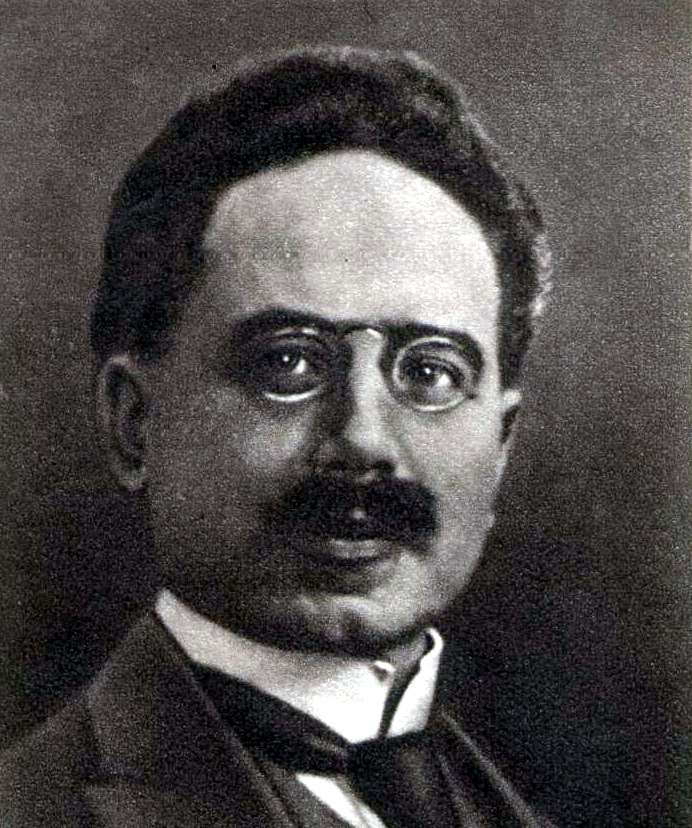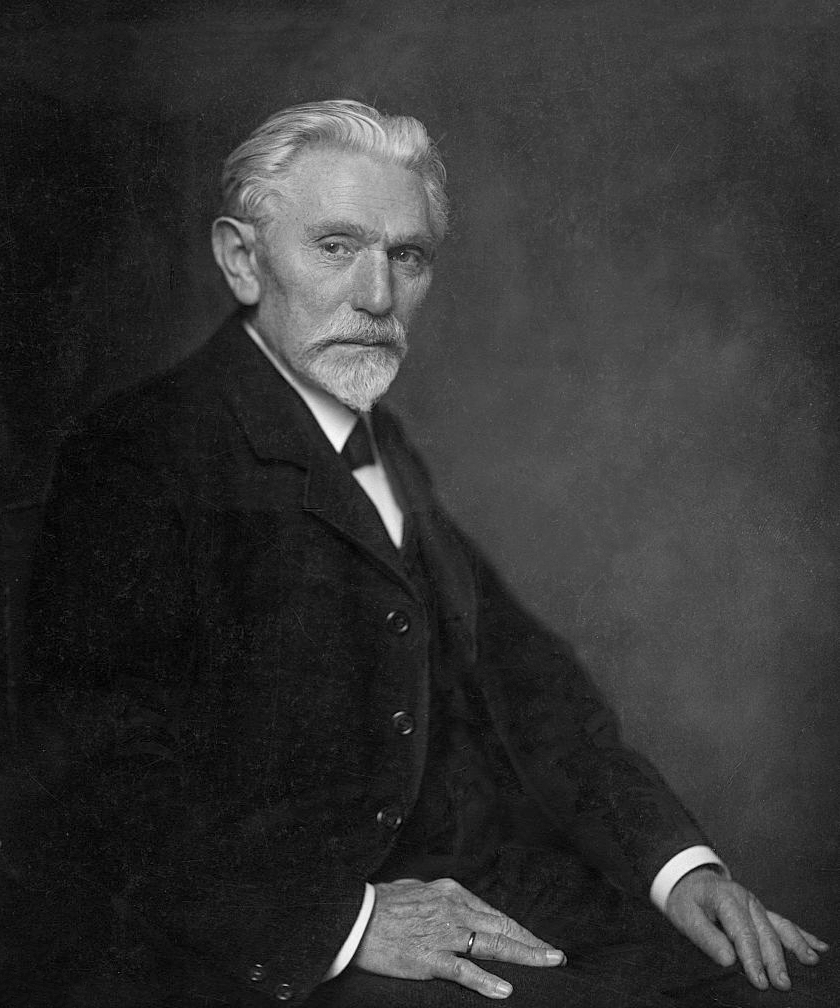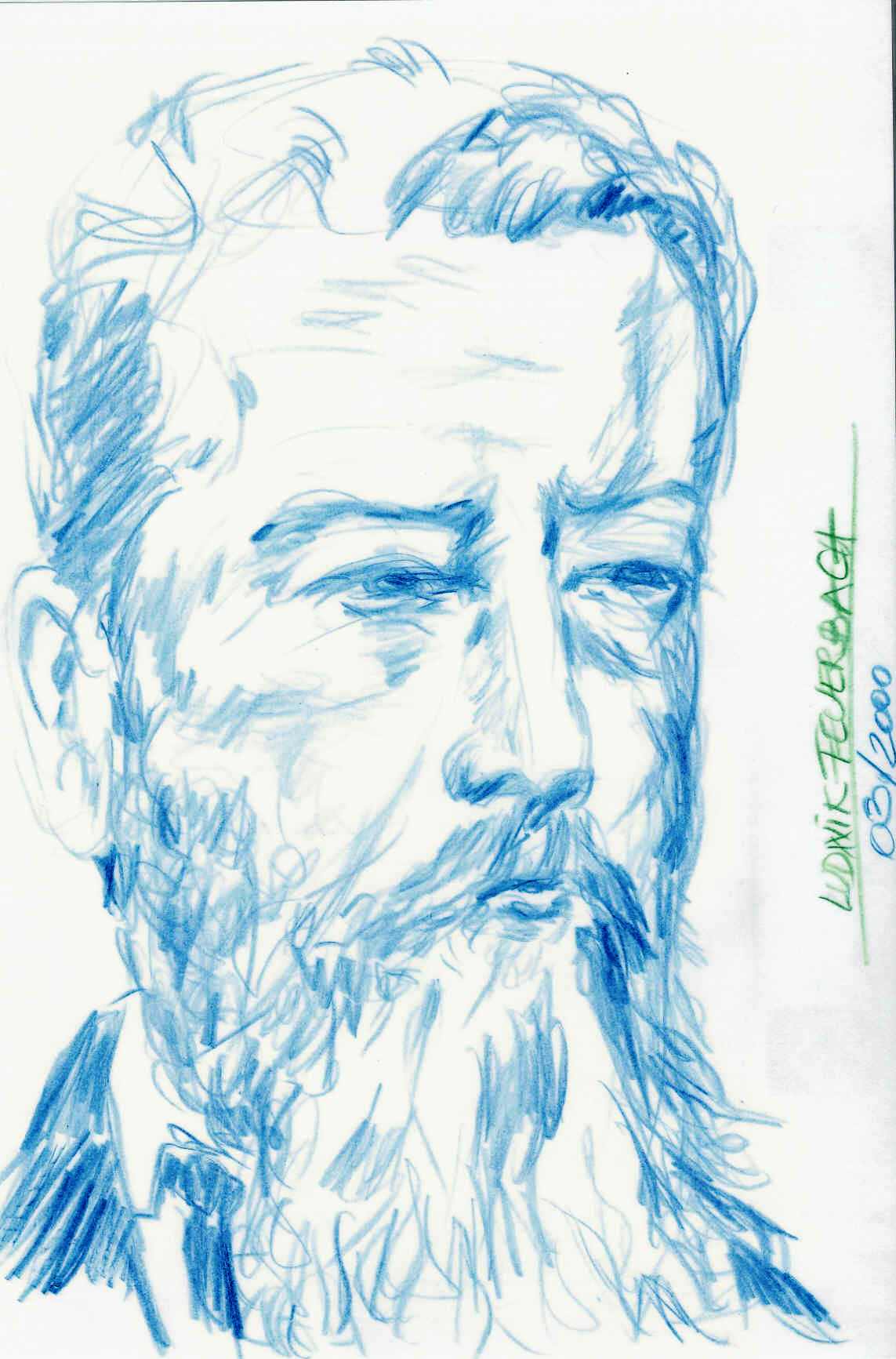|
Hermann Müller (politician)
Hermann Müller (18 May 1876 – 20 March 1931; ) was a German Social Democratic politician who served as the Foreign minister (1919–1920), and twice as the Chancellor of Germany (1920, 1928–1930) in the Weimar Republic. In his capacity as Foreign Minister, he was one of the German signatories of the Treaty of Versailles (28 June 1919). Early life Hermann Müller was born on 18 May 1876 in Mannheim, the son of Georg Jakob Müller (born 1843), a producer of sparkling wine and wine dealer from Güdingen near Saarbrücken, and his wife Karoline (née Vogt, born 1849, died after 1931), originally from Frankfurt am Main. Müller attended the ''Realgymnasium'' at Mannheim and after his father moved to Niederlößnitz in 1888 at Dresden. After his father died in 1892, Müller had to leave school due to financial difficulties and began an apprenticeship (''kaufmännische Lehre'') at Frankfurt. He worked in Frankfurt and Breslau, and in 1893 joined the Social Democratic Party of Germa ... [...More Info...] [...Related Items...] OR: [Wikipedia] [Google] [Baidu] |
Chancellor Of Germany
The chancellor of Germany, officially the federal chancellor of the Federal Republic of Germany,; often shortened to ''Bundeskanzler''/''Bundeskanzlerin'', / is the head of the federal government of Germany and the commander in chief of the German Armed Forces during wartime. The chancellor is the chief executive of the Federal Cabinet and heads the executive branch. The chancellor is elected by the Bundestag on the proposal of the federal president and without debate (Article 63 of the German Constitution). The current officeholder is Olaf Scholz of the SPD, who was elected in December 2021, succeeding Angela Merkel. He was elected after the SPD entered into a coalition agreement with Alliance 90/The Greens and the FDP. History of the office The office of Chancellor has a long history, stemming back to the Holy Roman Empire, when the office of German archchancellor was usually held by archbishops of Mainz. The title was, at times, used in several states of German-spea ... [...More Info...] [...Related Items...] OR: [Wikipedia] [Google] [Baidu] |
Social Democratic Party Of Germany
The Social Democratic Party of Germany (german: Sozialdemokratische Partei Deutschlands, ; SPD, ) is a centre-left social democratic political party in Germany. It is one of the major parties of contemporary Germany. Saskia Esken has been the party's leader since the 2019 leadership election together with Lars Klingbeil, who joined her in December 2021. After Olaf Scholz was elected chancellor in 2021 the SPD became the leading party of the federal government, which the SPD formed with the Greens and the Free Democratic Party, after the 2021 federal election. The SPD is a member of 11 of the 16 German state governments and is a leading partner in seven of them. The SPD was established in 1863. It was one of the earliest Marxist-influenced parties in the world. From the 1890s through the early 20th century, the SPD was Europe's largest Marxist party, and the most popular political party in Germany. During the First World War, the party split between a pro-war mainstream ... [...More Info...] [...Related Items...] OR: [Wikipedia] [Google] [Baidu] |
Burgfriedenspolitik
(, ) is a German term that refers to the political truce between Germany's political parties during World War I. The trade unions refrained from striking, the Social Democratic Party (SPD) voted for war credits in the Reichstag, and the parties agreed not to criticize the government and its war. There were several reasons for the , among them the belief that it was their patriotic duty to support the government in war, fear of government repression if they protested against the war and fear of living under an autocratic Russian tsar more than the German constitutional monarchy and its kaiser, and hope to achieve political reforms after the war such as the abrogation of the inequitable three-class voting system by co-operating with the government. The only member of parliament of any party to vote against war credits in the second session was Karl Liebknecht. In the third session on 20 March 1915, Otto Rühle joined him. Over the course of the war, the number of SPD politician ... [...More Info...] [...Related Items...] OR: [Wikipedia] [Google] [Baidu] |
World War I
World War I (28 July 1914 11 November 1918), often abbreviated as WWI, was one of the deadliest global conflicts in history. Belligerents included much of Europe, the Russian Empire, the United States, and the Ottoman Empire, with fighting occurring throughout Europe, the Middle East, Africa, the Pacific, and parts of Asia. An estimated 9 million soldiers were killed in combat, plus another 23 million wounded, while 5 million civilians died as a result of military action, hunger, and disease. Millions more died in genocides within the Ottoman Empire and in the 1918 influenza pandemic, which was exacerbated by the movement of combatants during the war. Prior to 1914, the European great powers were divided between the Triple Entente (comprising France, Russia, and Britain) and the Triple Alliance (containing Germany, Austria-Hungary, and Italy). Tensions in the Balkans came to a head on 28 June 1914, following the assassination of Archduke Franz Ferdin ... [...More Info...] [...Related Items...] OR: [Wikipedia] [Google] [Baidu] |
Second International
The Second International (1889–1916) was an organisation of socialist and labour parties, formed on 14 July 1889 at two simultaneous Paris meetings in which delegations from twenty countries participated. The Second International continued the work of the dissolved First International, though excluding the powerful anarcho-syndicalist movement. While the international had initially declared its opposition to all warfare between European powers, most of the major European parties ultimately chose to support their respective states in World War I. After splitting into pro-Allied, pro-Central Powers, and antimilitarist factions, the international ceased to function. After the war, the remaining factions of the international went on to found the Labour and Socialist International, the International Working Union of Socialist Parties, and the Communist International. History Pre-foundation conferences (1881–1889) The foundation of a new international was first discussed at ... [...More Info...] [...Related Items...] OR: [Wikipedia] [Google] [Baidu] |
Otto Braun
Otto Braun (28 January 1872 – 15 December 1955) was a politician of the Social Democratic Party of Germany (SPD) during the Weimar Republic. From 1920 to 1932, with only two brief interruptions, Braun was Minister President of the Free State of Prussia. The continuity of personnel in high office resulted in a largely stable government in Prussia, in contrast to the sometimes turbulent politics of the Reich. During his term of office, Prussia's public administration was reorganized along democratic lines. He replaced many monarchist officials with supporters of the Weimar Republic, strengthened and democratized the Prussian police, and made attempts to fight the rise of the Nazi Party. On 20 July 1932, in the Prussian coup d'état (), Reich Chancellor Franz von Papen ousted Braun's government from power following its loss of a parliamentary majority to the Nazis and the Communist Party of Germany. After Adolf Hitler seized power at the end of January 1933, Prussia lost its dem ... [...More Info...] [...Related Items...] OR: [Wikipedia] [Google] [Baidu] |
Rosa Luxemburg
Rosa Luxemburg (; ; pl, Róża Luksemburg or ; 5 March 1871 – 15 January 1919) was a Polish and naturalised-German revolutionary socialist, Marxist philosopher and anti-war activist. Successively, she was a member of the Proletariat party, the Social Democracy of the Kingdom of Poland and Lithuania (SDKPiL), the Social Democratic Party of Germany (SPD), the Independent Social Democratic Party (USPD), the Spartacus League (), and the Communist Party of Germany (KPD). Born and raised in an assimilated Jewish family in Poland, she became a German citizen in 1897. After the SPD supported German involvement in World War I in 1915, Luxemburg and Karl Liebknecht co-founded the anti-war Spartacus League () which eventually became the KPD. During the November Revolution, she co-founded the newspaper (''The Red Flag''), the central organ of the Spartacist movement. Luxemburg considered the Spartacist uprising of January 1919 a blunder, but supported the attempted overthrow of the ... [...More Info...] [...Related Items...] OR: [Wikipedia] [Google] [Baidu] |
August Bebel
Ferdinand August Bebel (22 February 1840 – 13 August 1913) was a German socialist politician, writer, and orator. He is best remembered as one of the founders of the Social Democratic Workers' Party of Germany (SDAP) in 1869, which in 1875 merged with the General German Workers' Association into the Socialist Workers' Party of Germany (SAPD). During the repression under the terms of the Anti-Socialist Laws, Bebel became the leading figure of the social democratic movement in Germany and from 1892 until his death served as chairman of the Social Democratic Party of Germany. Biography Early years Ferdinand August Bebel, known as August, was born on 22 February 1840, in Deutz, Germany, now a part of Cologne. He was the son of a Prussian noncommissioned officer in the Prussian infantry, initially from Ostrowo in the Province of Posen, and was born in military barracks. The father died in 1844. As a young man, Bebel apprenticed as a carpenter and joiner in Leipzig."August Be ... [...More Info...] [...Related Items...] OR: [Wikipedia] [Google] [Baidu] |
Ludwig Feuerbach
Ludwig Andreas von Feuerbach (; 28 July 1804 – 13 September 1872) was a German anthropologist and philosopher, best known for his book ''The Essence of Christianity'', which provided a critique of Christianity that strongly influenced generations of later thinkers, including Charles Darwin, Karl Marx, Sigmund Freud, Friedrich Engels, Richard Wagner, and Friedrich Nietzsche. An associate of Young Hegelian circles, Feuerbach advocated atheism and anthropological materialism. Many of his philosophical writings offered a critical analysis of religion. His thought was influential in the development of historical materialism,Nicholas Churchich, ''Marxism and Alienation'', Fairleigh Dickinson University Press, 1990, p. 57: "Although Marx has rejected Feuerbach's abstract materialism," Lenin says that Feuerbach's views "are consistently materialist," implying that Feuerbach's conception of causality is entirely in line with dialectical materialism." where he is often recognized as a ... [...More Info...] [...Related Items...] OR: [Wikipedia] [Google] [Baidu] |
Dresden
Dresden (, ; Upper Saxon: ''Dräsdn''; wen, label=Upper Sorbian, Drježdźany) is the capital city of the German state of Saxony and its second most populous city, after Leipzig. It is the 12th most populous city of Germany, the fourth largest by area (after Berlin, Hamburg and Cologne), and the third most populous city in the area of former East Germany, after Berlin and Leipzig. Dresden's urban area comprises the towns of Freital, Pirna, Radebeul, Meissen, Coswig, Radeberg and Heidenau and has around 790,000 inhabitants. The Dresden metropolitan area has approximately 1.34 million inhabitants. Dresden is the second largest city on the River Elbe after Hamburg. Most of the city's population lives in the Elbe Valley, but a large, albeit very sparsely populated area of the city east of the Elbe lies in the West Lusatian Hill Country and Uplands (the westernmost part of the Sudetes) and thus in Lusatia. Many boroughs west of the Elbe lie in the foreland of the Ore Mounta ... [...More Info...] [...Related Items...] OR: [Wikipedia] [Google] [Baidu] |







